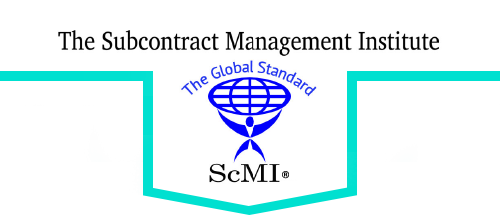
ICEBERG A Call for More Focus on Subcontract Management
By: Vic Avetissian, Dan Jacobs, and Lenn Vincent
Overview
The roles of program management and contracts professionals are changing and expanding. These professionals are now multitaskers dealing with many projects and competing priorities. They have had to adopt more of a “relationship manager” role to deal with the increased complexity of the value chain during the interactions between both the buyers and the sellers, including managing risks, financial arrangements, compliance and oversight impacts, and prime/sub relationships—just to name a few.
U.S. federal government contracting is not only complex and demanding, but it is also increasingly sophisticated. You have to deal with more complexity in the contracts you manage—system of systems, enterprise contracts, huge indefinite delivery/indefinite quantity contracts, data rights, and commercial pricing, not to mention the expectations of the Department of Defense’s (DOD) “Better Buying Power” initiative. The numbers are bigger, the stakes are higher. Some of the transactions that are conducted through well-managed contracts today were undreamed of a few years ago.
Regardless of a “rule-based,” conservative environment, the federal government acquisition system works, and it does so because outcomes are primarily determined by people, not systems or processes. In leadership, the sole criterion for measurement is results. Competent federal government personnel and their industry partners who participate in the acquisition process lead and execute successful programs 24/7 on a global scale. They deserve our praise and appreciation. That being said, the federal government and its industry partners who participate in the acquisition process are not providing sufficient and/or consistent leadership in the management of programs, contracts, and specifically subcontracts.
Continue Reading: Download PDF




